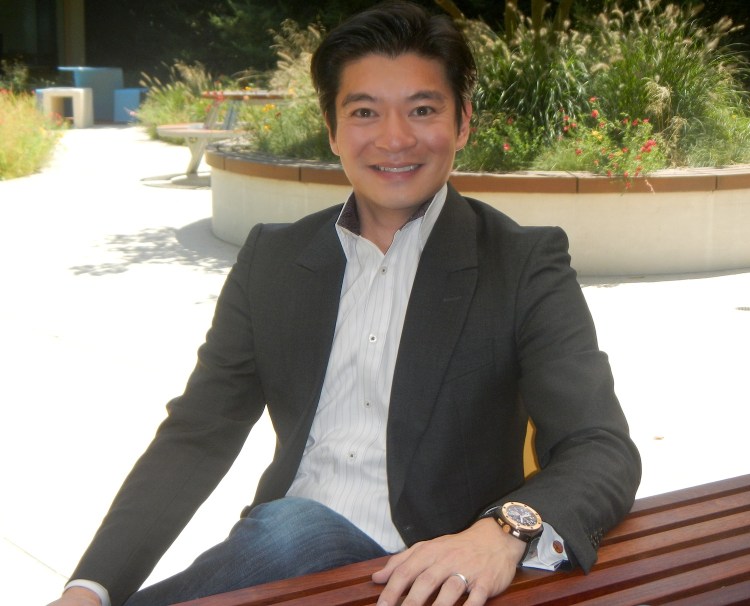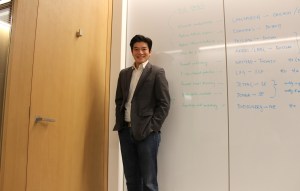VentureBeat: You’ve been in venture capital for seven-plus years, and you were doing investing before that. How have things changed, particularly in the last year or two, since you came to Khosla?
Chung: Compared to when I started, a lot of the companies are much more experimental and technically complex. It’s hard to get funding for a lot of these companies. It’s forced a lot of investors, whether at KV or elsewhere, to be a lot more creative about where they find sources of investment. It also forces us to invest in things that really have the ability to change industries.
My desire and passion for investing in these types of technologies is undeterred, and in fact probably enhanced. Especially with some of the news that you’ve been hearing about the pollution problems in China and climate change.
Whether it’s the energy problem, the pollution problem, food and water scarcity, education problems, all these things rocking the world outside of the U.S., it’s gotten exacerbated since I started as a VC. It makes me more excited to get involved in those types of opportunities.
The importance of investing in a product that has an emotional connection to its end customer is still absolutely critical. It encompasses all the things I look at, whether it’s clean tech or consumer web, mobile, whatever.
Two of the clean tech investments that I’m involved with, LanzaTech and EcoMotors: Those two are great examples of a product or a process that, for their consumer — in one case it might be a steel plant or factory, in another case it might be an automotive company — that engenders this type of emotional connection.
“I have to have that in order for my company to survive.” That’s what motivates these large partners to work with tiny startups and help them fund plants.
VentureBeat: So even in a B-to-B context, you’re saying that emotional connection matters.
Chung: Absolutely. I can tell you that with LanzaTech’s partners — one of which is the largest steel manufacturer in China, number two in the world — the only way that you can get the chairman’s attention is if they feel like there’s an emotional stake in that technology. For them, it’s a matter of their future as a steel manufacturer. “The Chinese government is going to put limitations on my growth if I can’t curb my waste gas, the carbon monoxide. So either I build a $3 billion pipeline to ship it to the ocean, or I invest in some technologies that solve it at the source.”
LanzaTech was one of the very few technologies they saw that could do that.
VentureBeat: You’ve recently had a daughter. How has that changed your life as a VC?
Chung: I’d say that if time management was a critical skill for a VC before having a child, it’s an order of magnitude more important after you have a child. Vinod had four kids in the span of I think 57 months. Samir had three kids in 40 months. We’re a very family-oriented firm. So I appreciate, more than ever, how those guys have been able to balance family with an incredibly challenging and hard work schedule.
It’s definitely changed me in the sense that I’ve had to be a lot more—I have to hold the bar high on every one of the meetings I take, every time I travel. I want to get home to the kid.
It also means a lot less sleep. I have tried to set it up so that I can get home to at least see the kid if I’m not traveling, for bath time and maybe to put her down. I spend some time one on one with my wife, who is the champ in all of this, and then my work night starts. I power on until whatever hour in the night to finish all my stuff, and then we start in the morning when the baby starts crying and wakes us all up. That’s actually a very effective alarm clock. [Laughs]
You know that I’ve been involved with the arts, and my wife was as well. So the first gift that we got for Aria was a piano — not a kid’s piano, but a full-size piano. It’s designed by Steinway. It’s a very nice piano. My wife, during her last month of pregnancy, basically said, “[Tennis star] Michael Chang was taught by his father. Tiger Woods was taught by his father. You have to get your piano-playing chops back to a level where you can start teaching her.”
So we bought the piano, and here I am. I learned a Rachmaninoff piece that’s one of my most favorite pieces of music in the world. I played it to her pretty much every day of her life for the first three months. I would sit her down on my lap, and I would just play this piece of music. She just learned to focus in on that, such that it became a calming mechanism.
Eventually, she developed enough motor control to move my hands out of the way and then bang on the piano herself. So she’s definitely growing up around music.
We’re trying to encourage her and stretch her in a lot of different directions and see what she ends up being passionate about. It’s kind of the VC mentality applied to fatherhood.
VentureBeat: What’s it like working with Vinod?
Chung: Vinod was one of the big reasons why I joined the firm, unquestionably. What I love about working with him: He is truly a renaissance venture capitalist. In the way that I have so many broad interests — whether it’s music-related, science-related, math-related, whatever — he has that same type of breadth and depth of understanding different things that are going on in the world. Science. Business models. New technologies. That creates an incredible learning experience for all of us. That’s definitely one of the things that I love about him.
Another thing I love about him is his true passion for helping entrepreneurs build great companies, and the amount of effort that he puts into helping them. It’s a very daunting task, because we have 150 portfolio companies. For most of the companies where we have meaningful ownership, he’s going to spend time with them at least once a quarter, if not a lot more sometimes. It’s very refreshing and remarkable to see someone who is as accomplished and has done as much as he has who is as hungry as someone who’s new to the industry.
VentureBeat: You’re still singing?
Chung: Yeah. I did a Jason Mraz cover [at a recent Khosla party at the Fillmore], which was really fun. After that happened, I’ve been asked to do different keynotes at events or speak at different things. On a couple of occasions, folks would call me out on the spot to say, “Hey, we’ve heard that you’ve got some musical talent. We’d love for you to perform something.” I was doing a keynote at a Department of Energy event where the guy whipped out a guitar and we did [a song].
I’m still trying to do a little bit of that, but I’d say that a lot of my musical efforts right now are really channeled toward my daughter. Her name’s Aria, after all.
VentureBeat: Which is a musical name, yeah. I would imagine you’d have a hard time finding a whole lot more time for music, with all of your schedule.
Chung: Yeah. It’s really difficult. But if I can do a keynote and tell people how we’re reinventing the future of infrastructure and then, oh, by the way, three minutes to sing, I’m ready for that. [Big laughs]



